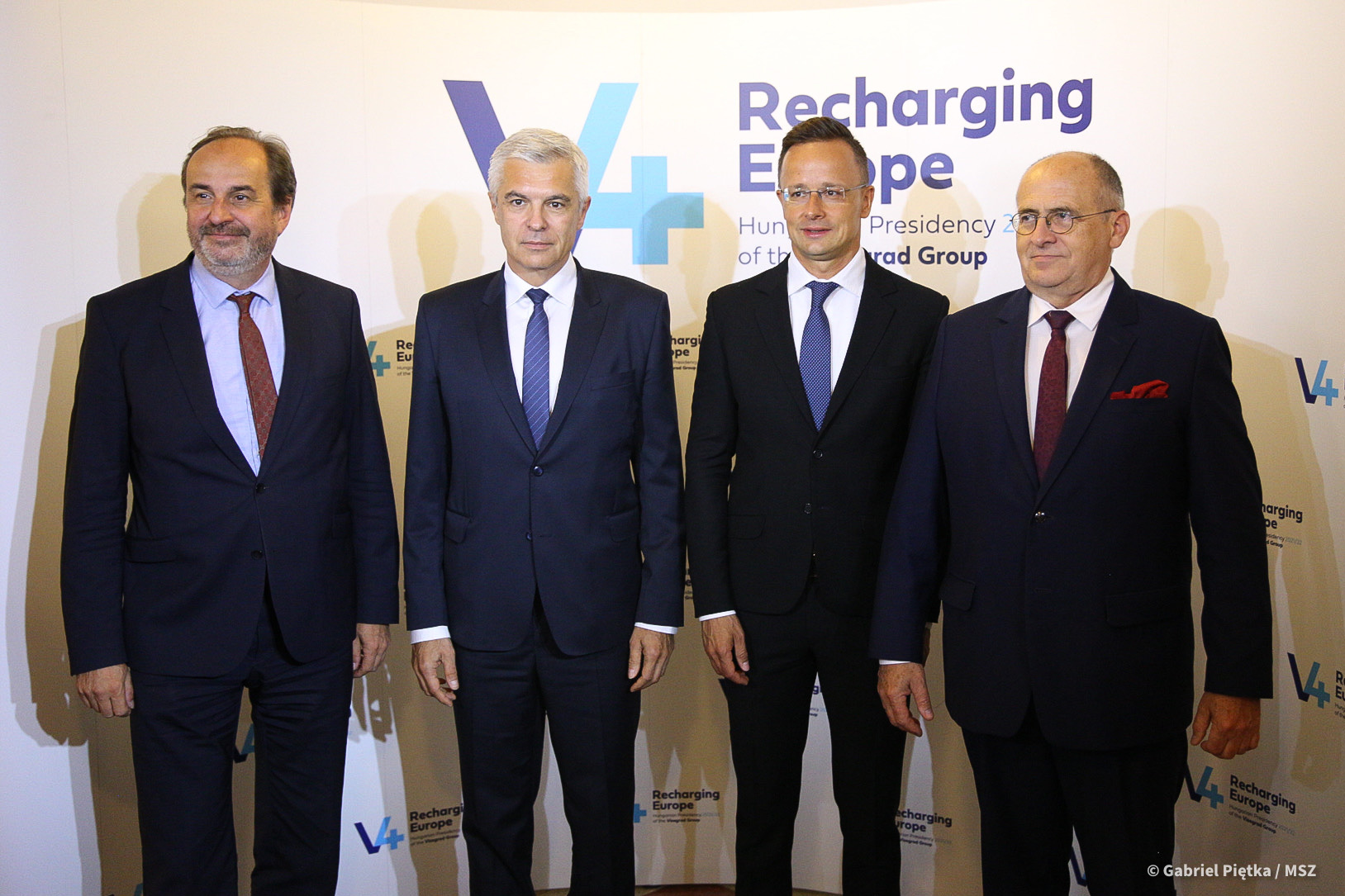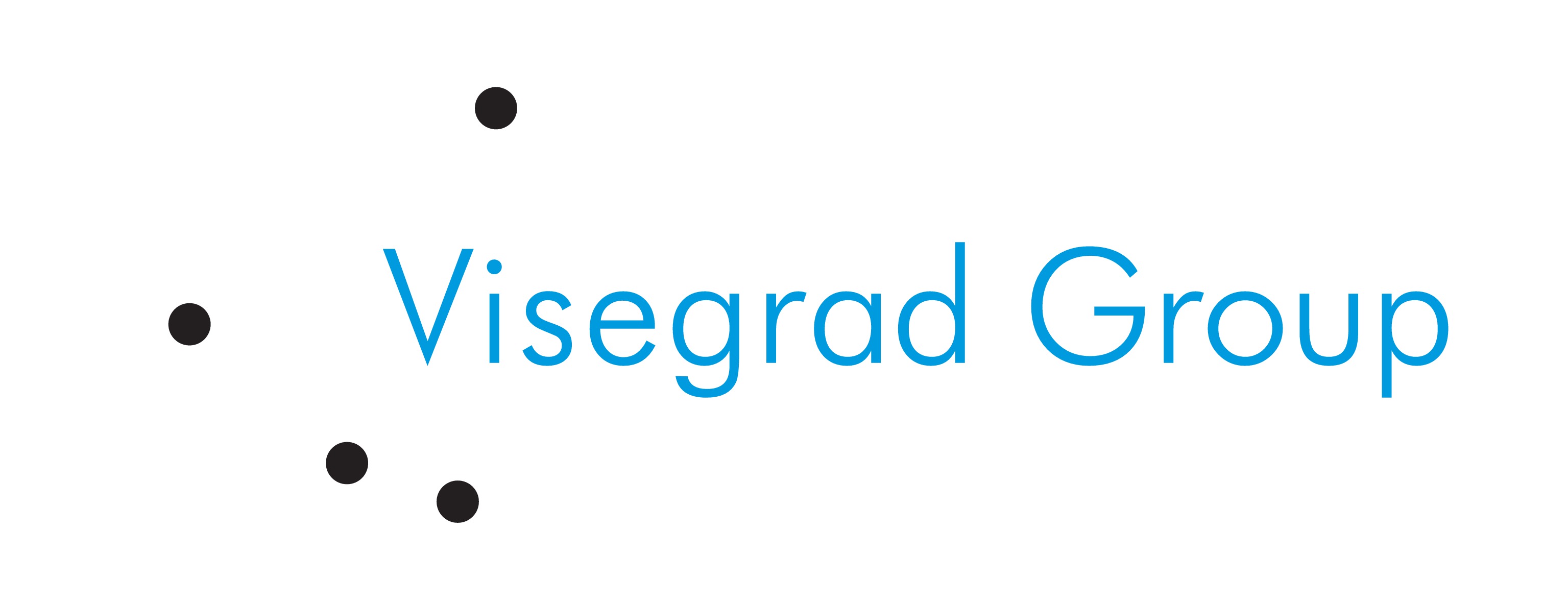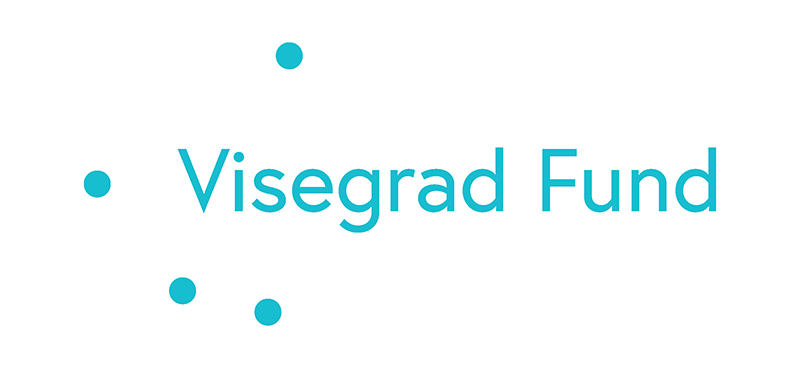
Ministers of Foreign Affairs of the Visegrad countries met for the first time under the Hungarian V4 Presidency on 19 July, to have an informal exchange views on current topics such as the future of Europe, post-pandemic economic recovery, migration and the Western Balkans. The meeting took place in Komárom, Hungary, hosted by Péter Szijjártó, Minister of Foreign Affairs and Trade of Hungary and attended by Ivan Korčok, Minister of Foreign and European Affairs of Slovakia, Zbigniew Rau, Minister of Foreign Affairs of Poland and Jan Kohout, Deputy Foreign Minister of the Czech Republic.
At the press conference, Péter Szijjártó announced that the V4 countries would coordinate their efforts (e.g. providing personnel and equipment) to support Lithuania in protecting its borders with Belarus, which is also the European Union's external border, to tackle the influx of illegal migrants from the non-EU country. The minister underlined that the Hungarian V4 Presidency's most important goal was to contribute to swift economic restart in the V4 region. He added that Hungary continued to reject the proposed global minimum tax rate, saying higher taxes due to unsuccessful financial policies should not be imposed on countries - like the V4 - that actually practised financial discipline. Highlighting the importance of the V4 region, minister Szijjártó said that, last year and in the past 4 months, Hungary has conducted 15% of its foreign trade (worth 30 billion €) with its Visegrad partners.
Zbigniew Rau highlighted the EU debate on the future of Europe as an important topic of the meeting. Poland expects the European population to be much more involved in the debate, he said. He added that the V4 discussed the situation in Lithuania “and agreed that it cannot be left alone facing the incredible migration pressure. Lithuanians already turned to individual states for help; we want to coordinate and be their powerful advocates as they struggle with an unprecedented challenge.” He also drew attention to the fact that Lithuania's border is also an EU border, so a European response is needed, especially from its closest neighbors. Regarding the recovery of the region's economy after the coronavirus epidemic, the Minister said that the outlook is very good and that the economic development of the V4 would affect the economy of the entire EU. Minister Ivan Korčok and Deputy Minister Jan Kohout both underlined their countries' solidarity with Lithuania. They positively assessed Hungary's V4 Presidency goals. Mr Korčok described the V4 ministerial exchange of views on the future of Europe as extremely useful, noting that, concerning the Conference on the Future of Europe, Slovakia is focusing on learning the views of its citizens. He added that, while the EU is obviously not uncriticisable, "in the Visegrád Group, we need to talk more about the fact that the EU has no alternative for us", and about "what and how we want to do in the EU.” Mr Kohout said that the V4 was a successful forum to represent the region's common interests, and Hungary's V4 Presidency goals were very important not only for Central Europe but the whole of Europe. Czechia attaches great importance to the Conference on the Future of Europe which should be a platform to hear all opinions, including on what should be improved.
Visit Gallery for more photos of the event.





